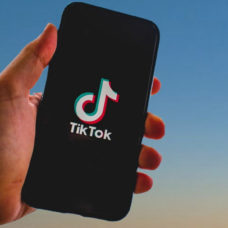Google has suffered the loss of some advertising revenue recently due to the perception that some YouTube content could hurt a company’s brand.
A recent problem has Google in a bit of a bind. It seems that some advertisers pulled their ads after they found themselves attached to some ‘questionable’ content. Google promised better tools for advertisers to avoid certain content.
In today’s world, content-driven traffic is a main source of revenue for any online venture. When YouTube launched, it provided a seemingly secure circle of benefit. Users created content and advertisers piggybacked on their draw.
PewDiePie could be the straw that broke YouTube's camel's back.Click To TweetSo, what’s the problem?
You could say that the system got too big, too hard to manage. A more benign hypothetical: a YouTube video that vilified the fossil fuel industry was prefaced with an Exxon advertisement.
In more extreme cases, YouTube videos covering dubious, violent, profane, or lewd activities were seemingly condoned by the unrelated ads that ran before them.
Havas, a major European marketing firm, the BBC, and the UK government all have pulled their ads from YouTube. Havas told reporters that YouTube was “unable to provide specific reassurances, policy and guarantees that their video or display content is classified either quickly enough or with the correct filters.”
That’s the advertisers’ problem in a nutshell: the possibility of an ad attached to a video that hurts the brand.
The Flight of the Advertisers
Spending part of your advertisement budget with Google should be kind of a no-brainer. Their YouTube platform is as synonymous with social media as Facebook. It’s a click-rich environment.
YouTube is huge, big enough to dwarf the online outlets of traditional media and almost rival the mainstream media in its own right. As a marketing campaign manager, you’d be crazy not to put a few dollars into YouTube.
By the way, advertisers pay anywhere from $.10 to $.30 per ad view.
Many advertisers thought the same thing, but if recent years have taught us anything it is that social media can be a stirring pot for controversy. The most recent example concerning YouTube comes from one Felix ‘PewDiePie’ Kjellberg.
Kjellberg is the single largest YouTube channel on the site, hosting millions of subscribers and raking in millions of views.
His success landed him deals with big mainstream media outlets like Disney. Yet, after videos construed as anti-semitic, Kjellberg lost the deal.
Google’s European boss, Matt Brittin, said that the company would improve advertising placement. According to The Guardian, Brittin didn’t say whether Google would look for extremist content or rely on users to flag it as they have in the past.
The rhetoric could be enough to damage Google’s image and profitability, as one British politician asserted that Google has profited from hatred.
Securing a Future for User-Created Content
Now remember kids, Google is a big, ultra-successful technology company. This controversy was just a minor setback.
Or maybe not, as Brian Weiser from Pivotal Research noted that this controversy could “curtail global growth this year,” per Barron’s Next.
According to reports from Google and their advertising arm, AdWords, new tools are being implemented to give advertisers greater control over the kind of content their products are paired with. We see Google bouncing back.
Which is good, because if a few bad jokes had ruined YouTube, all our entertainment are belong to the trash.
User-created content is a unique facet of modern culture, and there has never been anything quite like it in the history of the world. That being said, Internet users do not have to physically confront their actions. This creates a sort of blind confidence, and as a result, people show their dark sides to the net.
As we pointed out earlier, user created content doesn’t really make much money for the user. And when it does, as with PewDiePie, a slip up can take all the real cash away. In short, cash isn’t the motivation for YouTubers. It’s recognition, and that’s not going anywhere.
Google will let advertisers control where their ads go, and hopefully that will bring them back to the fold.
What do you think? Is this just a minor issue for Google, or is it something more serious?



















Comments (0)
Most Recent